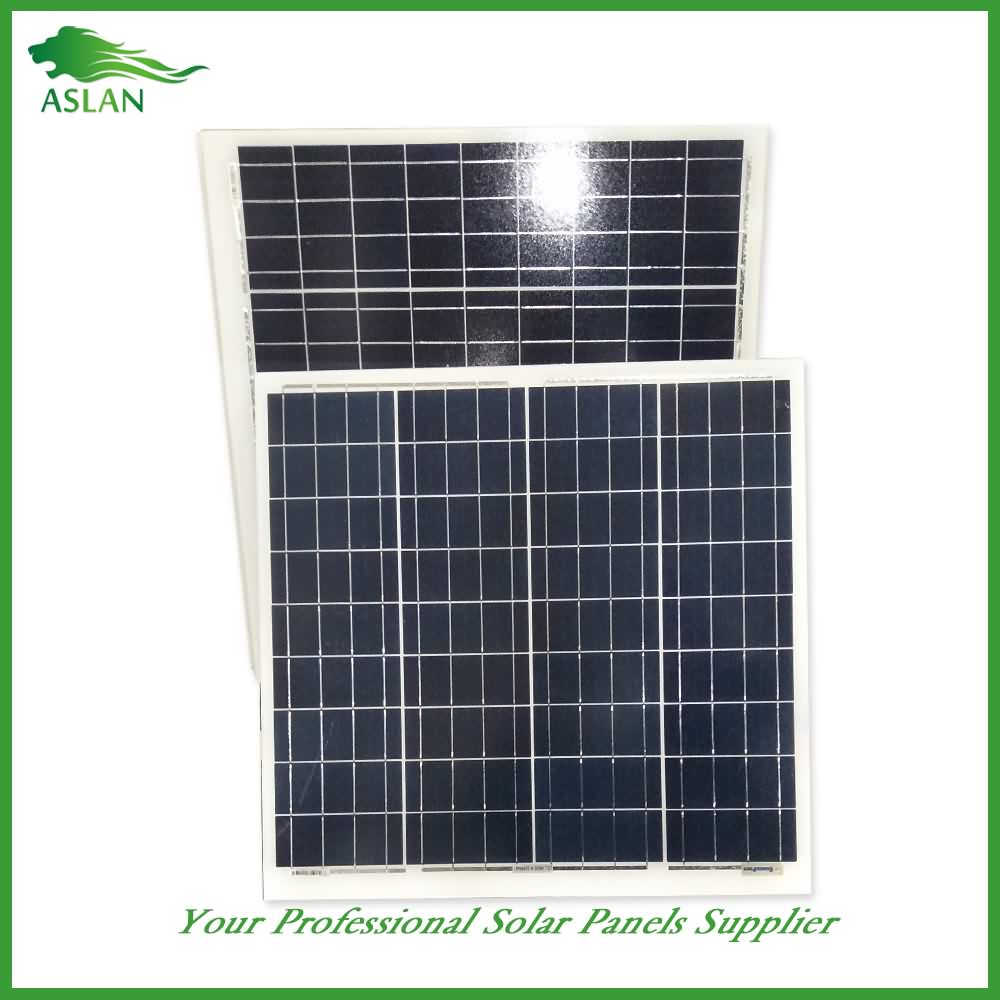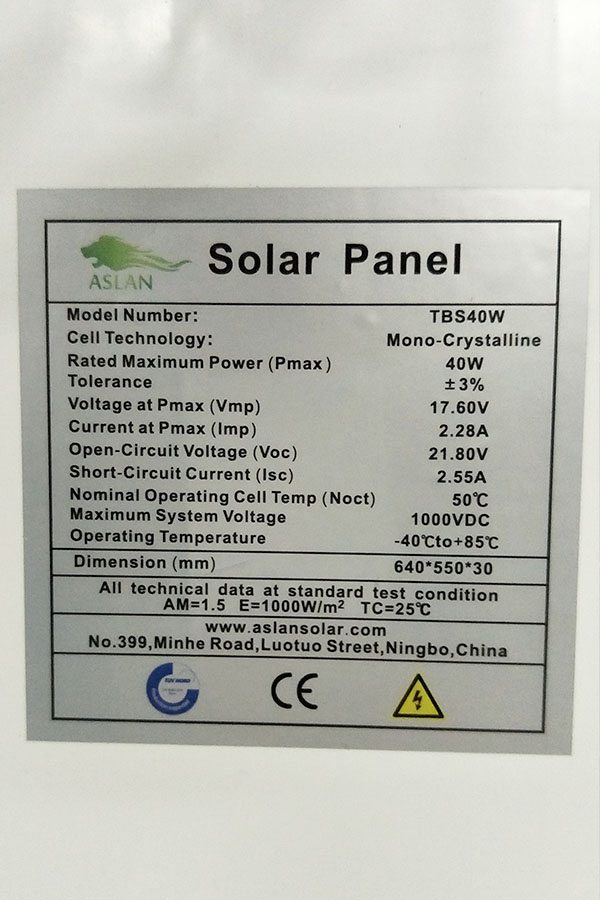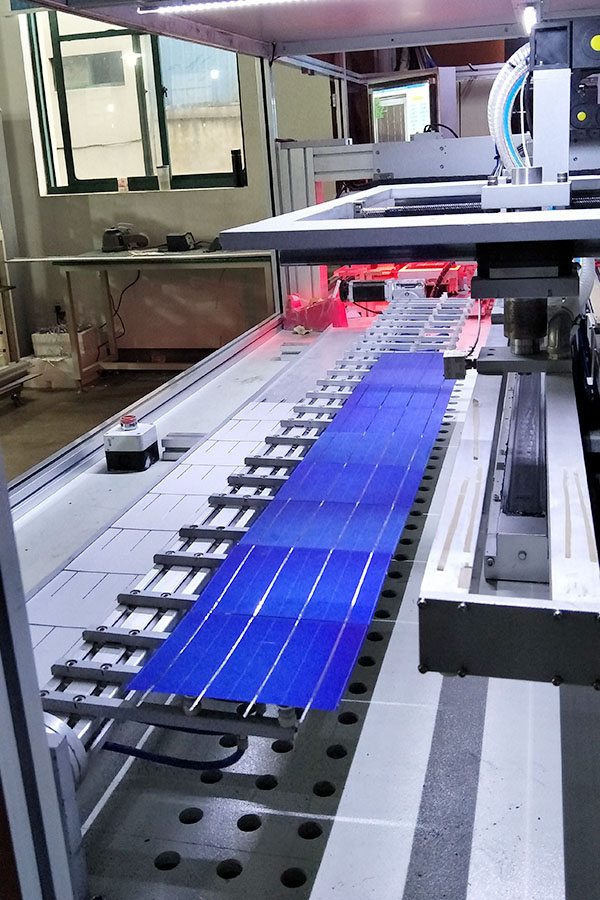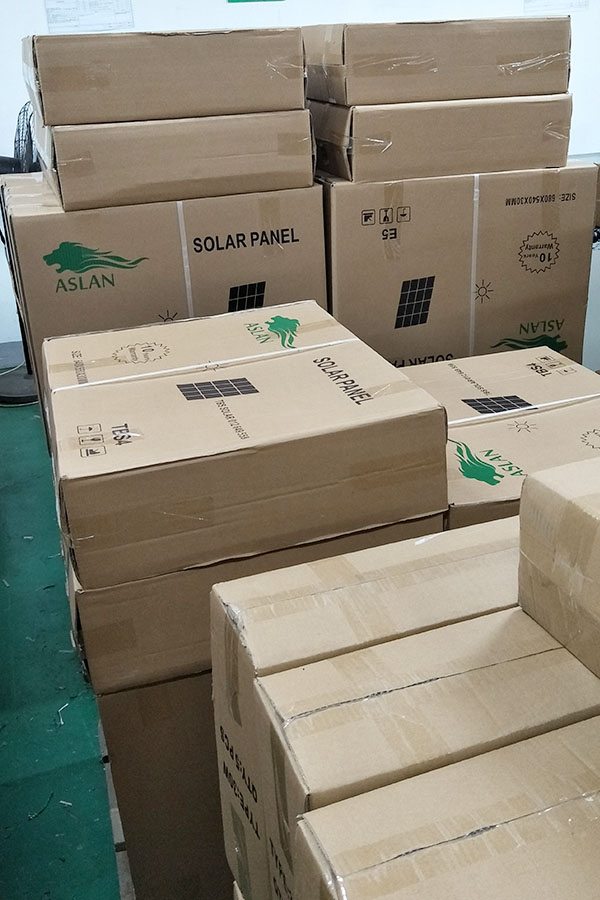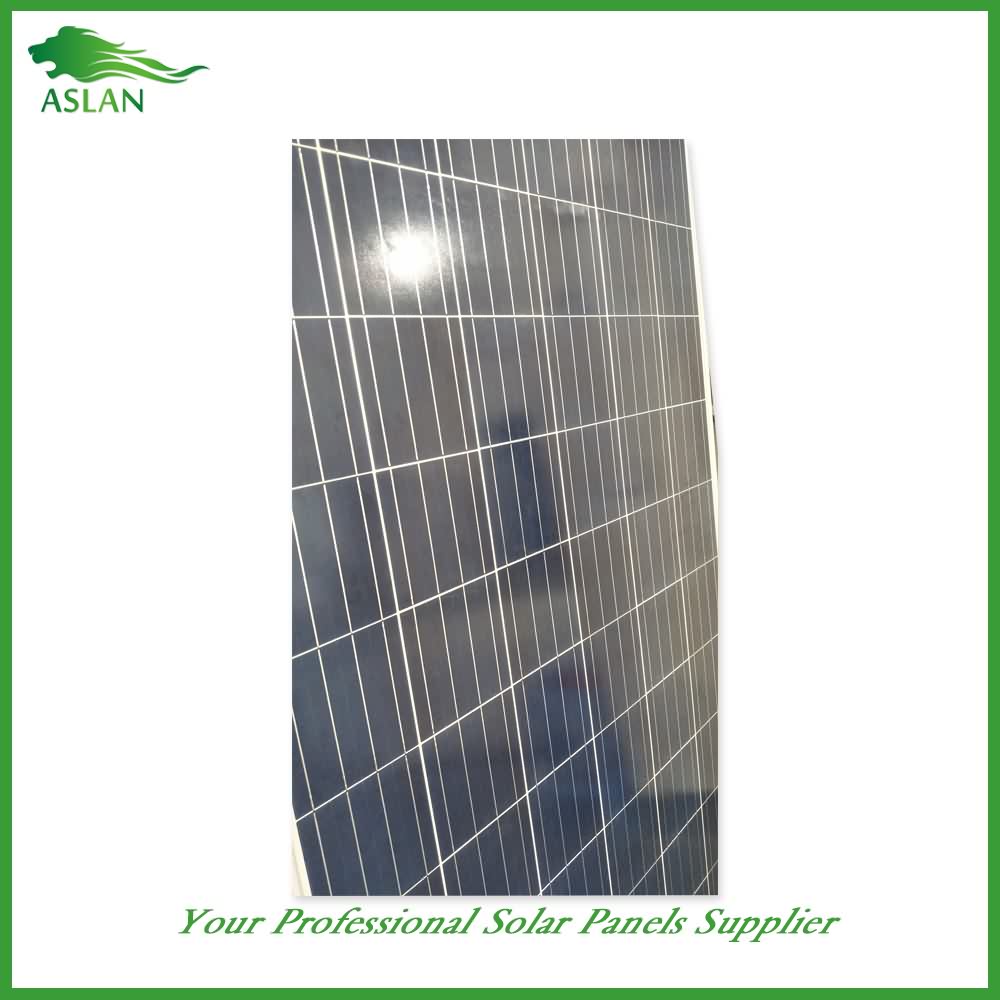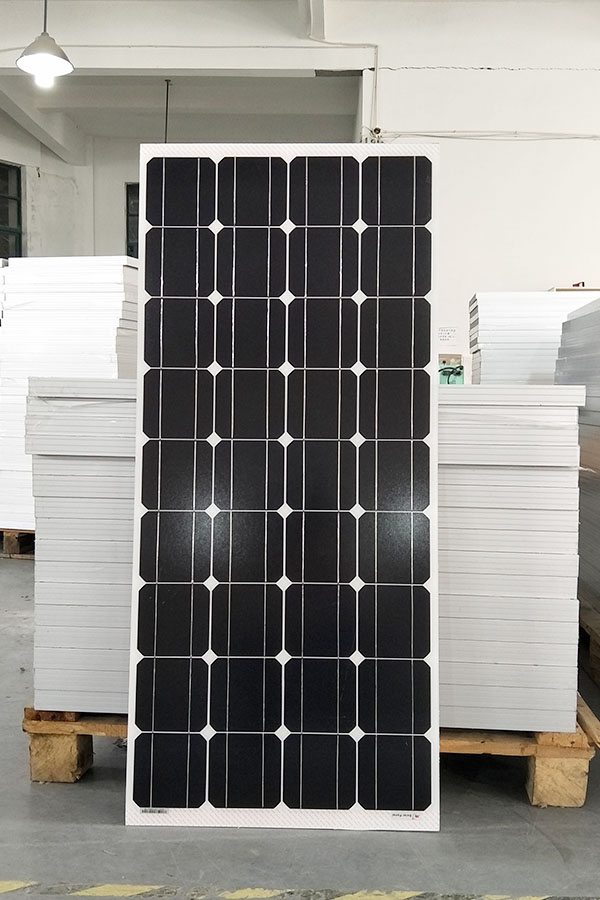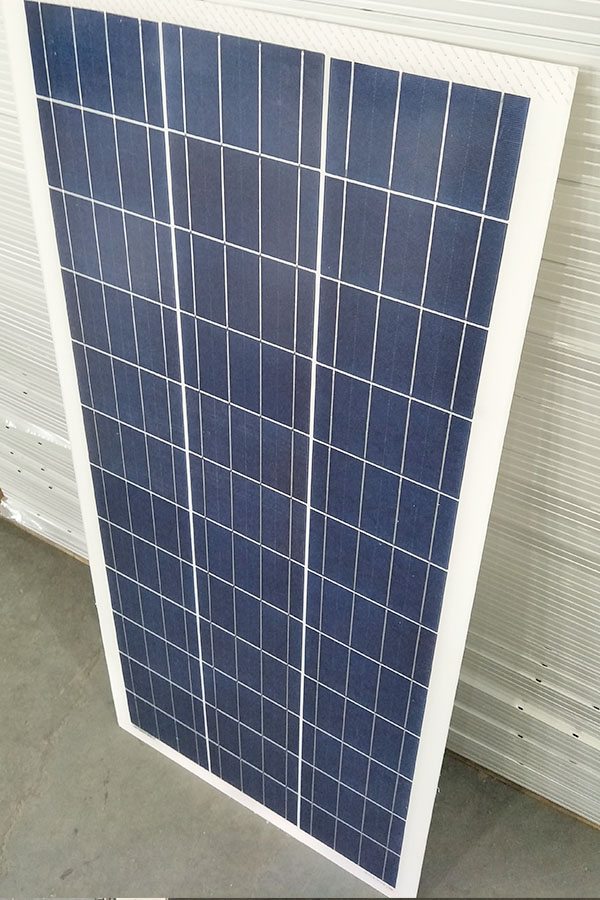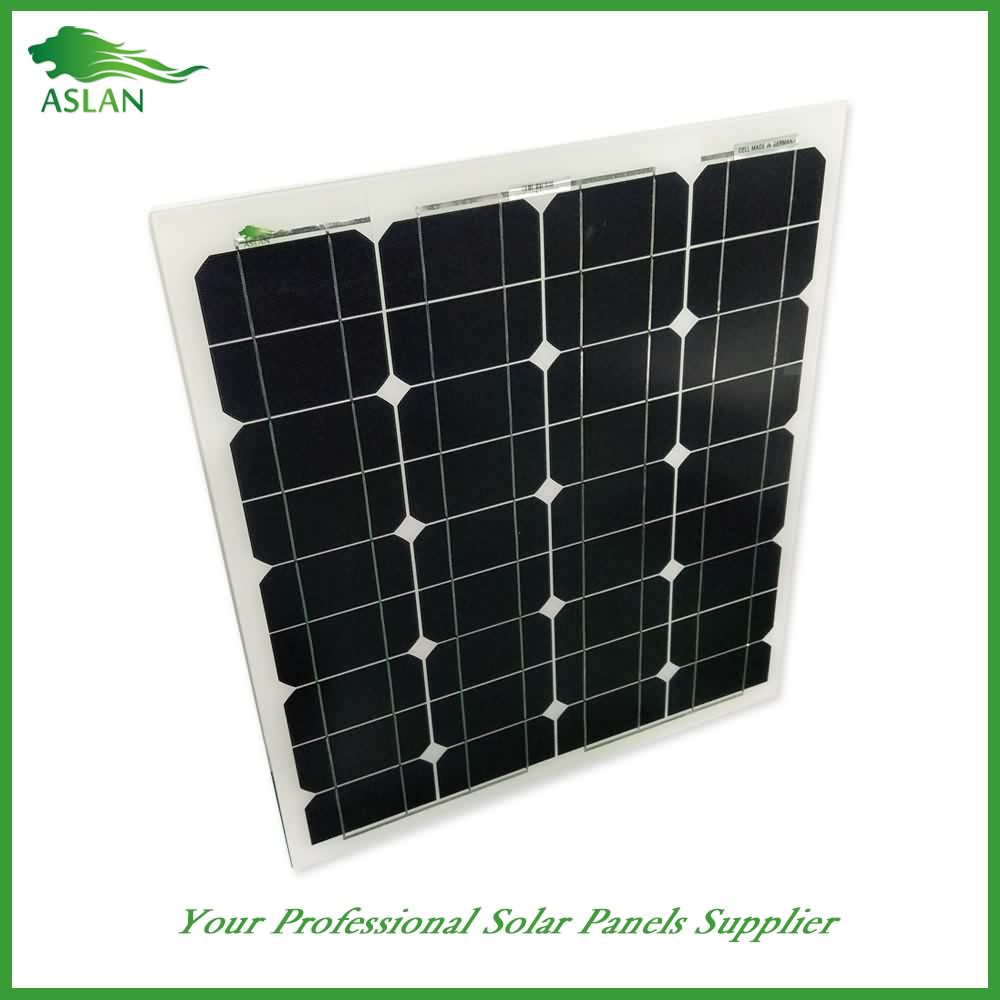High Performance Poly-crystalline Solar Panel 50W for Austria Factory
Short Description:
Our company insists all along the quality policy of "product quality is base of enterprise survival; customer satisfaction is the staring point and ending of an enterprise; persistent improvement is eternal pursuit of staff" and the consistent purpose of "reputation first, customer first" for High Performance Poly-crystalline Solar Panel 50W for Austria Factory, With the aim of "compete with good quality and develop with creativity" and the service principle of "take customers' demand as orientation", we will earnestly provide qualified products and good service for domestic and international customers.
Poly-crystalline Solar Panel 50W
Technical parameter
Maximum Power(W) 50W
Optimum Power Voltage(Vmp) 18.43V
Optimum Operating Current(Imp) 2.71A
Open Circuit Voltage(Voc) 22.48V
Short Circuit Current(Isc) 2.98A
Mechanical Characteristics
Cell Type Poly-crystalline 156 x 52mm
No of Cell 36 (4x9pcs)
Dimensions 678x542x25mm
Weight 4.2Kg
Front Glass 3.5mm,High Transmission, Low Iron,Tempered Glass
Junction box IP65 Rated
Output Cable TUV 1×4.0mm2/UL12AWG,Length:900mm
Temperature and Coefficients
Operating Temperature(°C): -40°C ~ + 85°C
Maximum System Voltage: 600V(UL)/1000V(IEC) DC
Maximum Rated Current Series: 15A
Temperature Coefficients of Pmax: -0.47%
Temperature Coefficients of Voc: -0.389%
Temperature Coefficients of Isc: 0.057%
Nominal Operationg Cell Temperature (NOCT): 47+/-2°C
Materials of solar panel
1).Solar Cell——Poly-crystalline solar cell 156*52mm
2).Front Glass——-3.2mm, high transmission, low iron, tempered glass
3).EVA——-excellent anti-aging EVA
4).TPT——-TPT hot seal made of flame resistance
5).Frame——anodized aluminum profile
6).Junction Box——-IP65 rated, high quality, with diode protection
Superiority: high quality anodized aluminum frame, high efficiency long life, easy installation, strong wind resistance, strong hail resistance.
Features
1. High cell efficiency with quality silicon materials for long term output stability
2. Strictly quality control ensure the stability and reliability, totally 23 QC procedures
3. High transmittance low iron tempered glass with enhanced stiffness and impact resistance
4. Both Poly-crystalline and Mono-crystalline
5. Excellent performance in harsh weather
6. Outstanding electrical performance under high temperature and low irradiance
Quality assurance testing
Thermal cycling test
Thermal shock test
Thermal/Freezing and high humidity cycling test
Electrical isolation test
Hail impact test
Mechanical, wind and twist loading test
Salt mist test
Light and water-exposure test
Moist carbon dioxide/sulphur dioxide
(11 Jun 2011)
AP Television
Ketura, 9 June 2011
1. Wide of desert
2. Mid of rocks in desert
3. Close up of sun
4. Desert road
4. Pan right of solar power field
5. Medium shot of solar power field
6. Pan right of solar receptors
7. Establishing shot of Yosef Abrahamowitz, the president of the Arava company, walking next to sign
8. SOUNDBITE (English) Yosef Abrahamowitz, President, Arava Company:
” This is the first commercial scale, good connected solar field in Israel and the entire region of the Middle East. So first of all that’s important, you can see that where we’re standing today is very sunny and it’s always very sunny, we get two thousand two hundred and forty seven kilo watt hours per square metre, which is more than double that you get in most of Europe, and so it’s one of the best places on the planet to have solar power.”
9. Wide shot of Abrahamowitz walking near solar receptors
10. SOUNDBITE (English) Yosef Abrahamowitz, President, Arava Company:
“The earth is heating up and all of humanity is in race against time, we have to do our part, so we are doing our part, but for Israel the strategic necessity is much greater for three reasons, the first we are out of power, we are supposed to have 25% reserve of electricity like any normal country we are at zero, there will be black outs this summer and for the next couple of summers during peak ours. And because of this neighbourhood, we are in a tough neighbourhood, we are not interconnected with our neighbours on the grids, so the first thing Israel is out of power, solar energy is the fastest way to get new power on the grid, second is that we are highly dependent upon Egyptian gas for a lot of our electricity, and the Egyptian gas line has been volatile, there has been sabotage there has been accidents, with the Arab Spring they are questioning the entire contract. The third that differentiates Israel and creates the necessity for us to build solar fields, massive solar fields and quickly is because the missiles that Iran has supplied in Gaza to Hamas and up north to Hezbollah can reach 90% of the conventional power plants in the state of Israel.”
11. Electricity pole with sun in background
12. Mid of Abrahamowitz walking with colleague near solar receptors
13. Pan left from solar receptors to Abrahamowitz walking with colleague
AP Television
Tel Aviv, 9 June 2011
14. Establisher shot of Professor Eliezer Gileadi, Faculty of Exact Sciences at Tel Aviv University
15. SOUNDBITE (English) Professor Eliezer Gileadi, Faculty of Exact Sciences, Tel Aviv University:
“The problem with the solar energy is that it is coming down to us at low density, in other words we need relatively large surface areas to produce it, for example in order to produce an amount of energy that is about equivalent to one power station, about one thousand mega watts, Giga watts, sorry, we need ten thousand square kilometres of peak power from the solar cell.”
AP Television
Ketura, southern Israel – 9 June 2011
16. Wide shot of electricity poles
17. Medium shot of electricity pole, solar power filed in background
18. SOUNDBITE (English) Professor Eliezer Gileadi, Faculty of Exact Sciences, Tel Aviv University:
“I don’t think that we can hope in the near future to be at a position that we’ll be, that solar energy will help us to be independent completely from oil from Arab countries, or from oil from fossil fuel in general. So we have to sort of make do with reducing the amount we use, in other words if we could use during the day, I don’t know maybe the amount of one or two power stations, that would reduce the amount we use from oil and that would reduce the prices and the dependency.”
AP Television
Ketura, southern Israel – 9 June 2011
LEAD IN:
STORYLINE:
You can license this story through AP Archive: http://www.aparchive.com/metadata/youtube/f7546dbe3d3b7cd6fad20005ae90b53b
Find out more about AP Archive: http://www.aparchive.com/HowWeWork
Full information: https://goo.gl/W9IMCQ
